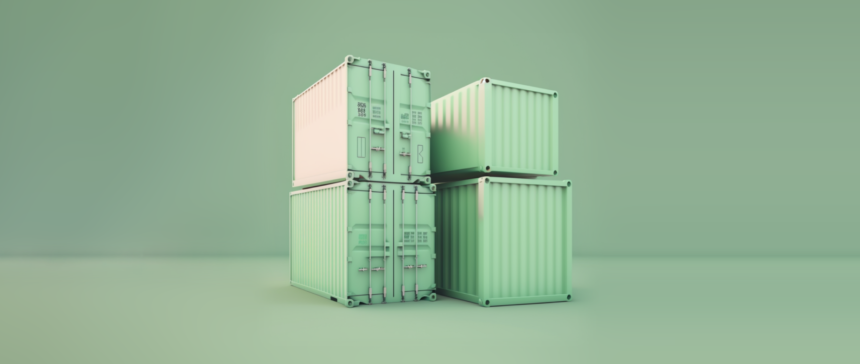Wholesale trade is worth about $670 billion dollars annually in the US alone, and the industry has grown by more than 38% since 2020.
Those are hard numbers for sellers to ignore, which is why more of them, especially dropshippers, are scrambling for a piece of the wholesale ecommerce pie.
Still, you can’t sell a product you don’t have. The biggest challenge in sourcing products is finding a supplier you can trust. With scores of wholesale options all around the world, finding the best supplier for your online business can feel overwhelming.
But it doesn’t need to. With Shopify Collective, you can discover high-quality products from Shopify brands to sell through your online store. Another option is a marketplace like Faire, which offers products from thousands of independent brands.
If you’re already on Shopify, you can use the Faire: Buy Wholesale product sourcing app to buy wholesale products and sync them to your store. If you want to sell wholesale, you can try the Faire: Sell Wholesale app to gain exposure to independent retailers globally.
Ahead, learn how wholesale buying works, explore additional options, and learn how to find the perfect wholesale or dropshipping suppliers for your needs.
What is a wholesale supplier?
A wholesale supplier is a business that buys goods directly from the manufacturer and sells them to brick-and-mortar or online retailers for a profit. The wholesale model soared in popularity with the onset of mass production and marketing techniques in the 19th century.
Without wholesalers, manufacturers would have to market goods to retailers on their own. Instead, wholesale vendors act as middlemen in the supply chain.
They buy from manufacturers in such large quantities they get a significant discount, which they can then pass on to retailers. They normally have a product license and, as such, their products are not available to regular customers—or at least not at the same price points they offer to retail partners.
Retailers then repackage the wholesale products for individual sale at a profit. Price is always negotiable, but dropshippers and other retailers typically pay wholesalers 60% to 70% of what they charge consumers.
How to find a reputable wholesale supplier
With so many options, finding the best suppliers for your business can be daunting. Here are a few things to bear in mind:
- Quality. Some sites do feature more than their fair share of knockoffs and low-quality products, so do your market research before you’re stuck with thousands of low-quality items.
- Price. Take detailed notes on prices and remember: everything is negotiable. The more you buy, the larger the discount should be. If you can get a 10% discount, then you’re in good company.
- Complaints. If something goes wrong, who’s going to fix it? Customer service is a key part of dropshipping, so you’ll only want to work with wholesalers who have a good reputation.
Another concern for merchants is how to find suppliers who can handle a quick turnaround. Meeting this window is crucial, as consumers expect products to arrive within three business days.
So how do you find legitimate, quality wholesale suppliers? The following are all wholesale supplier marketplaces you can order products from.
Wholesale suppliers by variety and price
If your online business curates a wide variety of products or is competing on price, consider working with some of the following wholesalers.
Alibaba and Aliexpress

The Ali family of websites is China’s most dominant online marketplace, comparable to Amazon in the US. Research shows it has a 63% share of the domestic (Chinese) ecommerce market. Alibaba is a wholesale supplier directory aimed at a B2B audience, while AliExpress is a B2C experience.
If you’re looking to conduct a limited trial run, AliExpress might be a wise choice before going all-in on wholesale with Alibaba. The Ali family of websites is ideal for:
- Medium- to low-quality goods sourced from China
- Wide variety of wholesale products and price points
- Private label/white labeled items
One of the best things about working with suppliers based in China is ePacket delivery, which makes shipping much faster and more affordable than it used to be. This is because in 2011, the US Postal Service made ePacket delivery eligible for First Class service and delivery confirmation.
DHgate

DHgate is another wholesale supplier based in China. DHgate has lower prices on a lot of wholesale products, but is known for carrying a lot of replica goods. If that’s not an issue for your business, it’s worth digging through deals to see what you can unearth.
DHgate is best for:
- Having a wide selection of products with options to suit any merchant and niche
- Integrated rating system to help vet the right supplier for you
Wholesale suppliers by location
Sometimes it’s best to pick a wholesale supplier based on geography. Fast delivery is increasingly a priority for modern consumers. If you’re in North America or Europe, then these are the wholesalers you should know about.
EK Wholesale

EK Wholesale is based in Scotland and has been around for more than 30 years, making it one of the leading wholesale suppliers for merchants who do business in Europe. EK is known for carrying high-quality products, and offers free delivery to the UK mainland on orders of £250 or more. Other benefits include:
- Specialization in clothing (so if you’re not selling clothes you might want to look elsewhere)
- Full integration with the Shopify POS
- Ability to design your own private label clothing brand
If most of your customers are based in the EU or your business specializes in the fashion niche, then working with EK Wholesale might be the best option for you.
Faire

Faire is ideal for merchants based in North America. It has a wide variety of suppliers based on the continent—and a wide variety of goods, including beauty, kitchen, pets, and bags.
Faire is also good for dropshippers looking to save on shipping costs. The free shipping bonus could really make a difference to your business, especially if you’re new to the world of dropshipping.
Wholesale suppliers for dropshipping
If you already know what you’re doing when it comes to dropshipping, take a look at some of the following options. Experienced dropshippers who are comfortable navigating clunky websites, or those with a very specific niche, are sure to find some great price points.
Wholesale Central

Wholesale Central has more than 1,400 suppliers, more than 700,000 products, and requires no membership fees. Its website isn’t flashy, but if you know what you’re looking for and have some experience wholesaling, this can be a solid option.
- Wholesale Central offers a wide variety of options for dropshipping and wholesale only. There are no retail prices whatsoever, so make sure you have your business ID and tax number ready.
- You can use Wholesale Central to search for dropshippers directly, and results are sorted by geography.
- No registration is needed: you can start searching and connecting to wholesalers right off the bat. Some other sites require a waiting period as they process your registration.
If you’re eager to get started on your dropshipping journey, not having a registration waiting period makes Wholesale Central a solid option.
IndiaMart

IndiaMart’s range of suppliers is staggering—it stocks the usual consumer goods, plus a few specific industries. Depending on the wholesale product you’re pursuing, this could be your best choice. Here’s why:
- IndiaMart is very good for certain niches. If you’re selling medical, chemical, industrial, or automobile supplies, this is the site for you.
- IndiaMart is also one of the few wholesale companies to offer over-the-counter (OTC) pharmaceutical dropshipping services.
IndiaMart’s strength lies in its niches. Few wholesale vendors have contact with the industries that IndiaMart does.
Other considerations for finding suitable wholesale suppliers
If you have the patience to dig through the options we’ve laid out, you’re bound to find suppliers that suit your business. Just make sure to avoid some of the common pitfalls:
- Overspending. On one hand, you want to spend enough so you actually get the benefit of working with a wholesale supplier, but you also don’t want to go all-in on a product that hasn’t been market tested. Know your budget limits and calculate what you should be paying.
- Fees. Know the membership fees or any extra costs you’re paying for so you don’t get surprised. Membership fees are the norm in the wholesale world, but make sure your supplier is upfront about it.
- Public selling. If a wholesale supplier offers goods to the public, that’s a red flag. Legitimate wholesale prices require business identification.
If you’re just starting your dropshipping journey and need a little extra help, consider a dropshipping app. An app syncs with your Shopify account, meaning you can add products directly to your online store. Dropshipping avoids the stress of packaging, shipping, and managing inventory.
What problems does a wholesale supplier solve?
For businesses that wholesale products, the goal is to select and curate the best wholesale products for customers, while handling all the marketing and customer service.
But those products have to come from somewhere. Otherwise, you’d have to develop your own products and supply chain. That’s where wholesale suppliers come in. There are many advantages to working with wholesalers:
- You can buy as much stock as you need without worrying about expensive storage rental.
- If something sells out suddenly, you have an existing relationship with a supplier and can quickly restock.
- You get discounted products to sell online at solid profit margins.
- You essentially bypass the entire product development process—saving money and time.
Dropshipping and wholesale suppliers
Dropshipping is a fulfillment method where an online store doesn’t keep the products it sells in stock. Instead, the store will purchase products from a third-party supplier and have them shipped directly to the customer. As a result, the seller never handles the products directly.
Think of it as wholesale purchasing meets third-party fulfillment (as opposed to regular retailers who buy wholesale—or develop and manufacture their own products—and handle fulfillment on their own).
Learn more: 150+ Dropshipping Products to Sell for Profit
Unconventional ways to find wholesale suppliers
Using wholesale supplier marketplaces is the simplest way to connect with a wholesale supplier in 2023, but it’s not the only way.
Those willing to stray from the beaten path just might find a great deal lurking around the corner. Other options for finding reliable and trustworthy suppliers include:
- Going to an industry trade show and connecting with wholesale suppliers in person
- Joining social media groups for your niche and talking shop with other merchants
- Joining trade organizations for your product to see if any names come up
Those willing to meet and greet a wholesaler live may find a solution that’s ideal for their unique business needs. Some people work better in person, and building a business relationship face to face can lead to increased trust and cheaper prices for wholesale purchases down the line.
Once you’ve found your ideal wholesale supplier, it’s time to reach out and take the next steps.
What to ask when contacting a potential wholesale supplier
Before you pick up the phone, ensure you have the necessary business license and tax documents on hand. You won’t be able to place an order at some companies—or even get their attention—without this information.
Rules for dealing with certified wholesalers vary from state to state. (Do your research.) Wholesale suppliers often have a special product license, meaning they legally cannot do business with consumers, only other businesses.
When you do call, here are key questions to ask:
- What are the minimum order quantities (MOQs)? If you’re looking to order 100 pieces of jewelry but the supplier only offers discounts on orders of 500 pieces or more, then that’s an issue.
- What’s the cost per unit? This question goes hand in hand with MOQs. According to the economies of scale, the more you order, the lower your cost per unit (CPU) will be. But don’t be tempted to order more than you need, especially if you’re just starting out. If a product isn’t as popular as you anticipated, you’ll be left with a large surplus and a loss.
- What’s the return policy? If there’s a problem with an order, are you going to have to front the cost of returning bulk orders, or will the wholesaler cover them Knowing the answer to this upfront will help minimize risk.
- What is the lead time? When you’re running a dropshipping business you need to keep your customers happy. Knowing the lead time on a product lets you manage customer expectations and not leave them waiting indefinitely. Long delays mean unhappy customers. Especially when the product is sold out and restocking will take too long.
Ask clear, direct questions that will help you find answers to your most important questions.
“I’m thinking of maybe starting a dropshipping business sometime soon” is the type of vague email that a busy wholesaler might just ignore. But straightforward questions that show you mean business—such as, “What’s your best price for 250 units per month?”—are more likely to get a reply.
And remember—oftentimes, you can negotiate with wholesale suppliers. Don’t be afraid to push back if the numbers they’re quoting won’t work for your margins.
Final checks before you sign on the dotted line
You’ve done all the homework and are almost ready to come to an agreement with your wholesale supplier. But before you sign that contract, here are a few more things to check:
- Ask for references from other customers. If a wholesale company is reluctant to share this information with you, that may be a red flag.
- Do they have liability insurance? If not, be careful. This type of insurance is there to protect you in case anyone is injured by a faulty or damaged product that you sold them.
- Do the numbers make sense? Don’t overextend your business just because the discount offered is exciting. If you’re new to dropshipping, the best strategy is to buy only what you need. You don’t want to be left holding surplus stock if what you thought was the next hot product turns out to be a dud.
Next, here are some special considerations for popular products available to wholesale, along with some things you’ll need to keep your eye on before placing a large order.
Popular wholesale products
When selecting among top wholesale suppliers, it’s important to consider what kinds of products you’re selling. While two suppliers may be roughly the same for general merchandise, one may be the ideal supplier for a specific niche. Here are some tips for specific wholesale items and industries.
Wholesale jewelry
When you’re looking for the right wholesale watch or jewelry supplier, make sure the wholesaler mentions the following key information. If they don’t, you might want to keep looking for another supplier.
- What are the product reviews like? Does the quality match consumer expectations?
- Who is the wholesaler currently supplying? If it’s a well-known ecommerce business, that builds trust.
- Jewelry is small and delicate. If the worst happens, who pays for it? Iron out issues like this before you place an order.
Wholesale clothing
Fashion is highly popular among dropshippers, and the possibilities are constantly changing in line with the latest trends. A couple things that can make or break a fashion wholesaler are:
- Possibility of brand customization (e.g., custom t-shirts or hoodies)
- The quality of the unboxing experience—packaging is the only channel that reaches 100% of your customers
Learn more: Print on Demand: A Low-Risk Way to Sell Custom T-Shirts, Books, and More
Wholesale tea and coffee
Selling coffee online has an easy entry point, with its own considerations:
- Nobody sees a logo when they’re drinking coffee, so packaging is your only opportunity to connect with wholesale buyers.
- Establishing a brand identity is important for those in the food industry, and a good wholesaler should be willing to work with you on that.
Find the best wholesale suppliers for your business today
Sourcing a supplier feels like a roadblock: You can’t open an online store until you have something to sell. But it’s never been easier to find a reliable wholesaler of quality products (who also delivers on time).
Find a well-reviewed wholesaler who’s familiar with your niche, get a few samples, negotiate a price, and open that online store.
Wholesale suppliers FAQ
How do I find a reliable wholesaler?
- Attend a trade show.
- Use a wholesale directory such as Alibaba, Global Sources, ThomasNet, or SaleHoo.
- Contact manufacturers directly.
- Look for online marketplaces.
- Research liquidation companies.
- Join a wholesale forum.
- Ask for referrals.
- Utilize a fulfillment house.
Where can I buy bulk items to resell?
The best wholesale website depends on the type of products you are looking for. Some of the most popular wholesale websites include AliExpress, DHgate, Alibaba, and Amazon.com.
How do I buy wholesale for a small business?
Many wholesale suppliers don’t sell to consumers directly, either by choice or by law. To benefit from wholesale prices, you’ll likely need to take a few steps toward starting a business, including opening a business bank account and getting an employer identification number (EIN).







